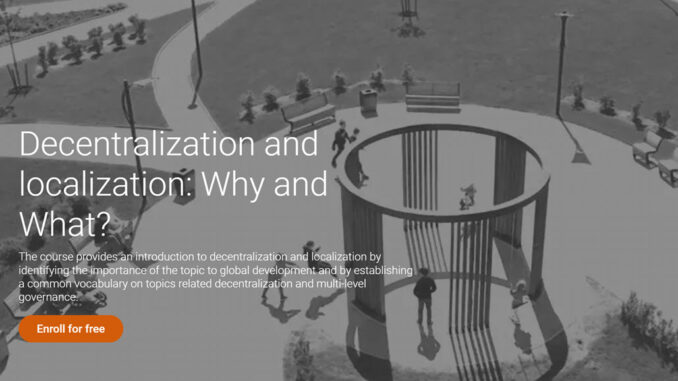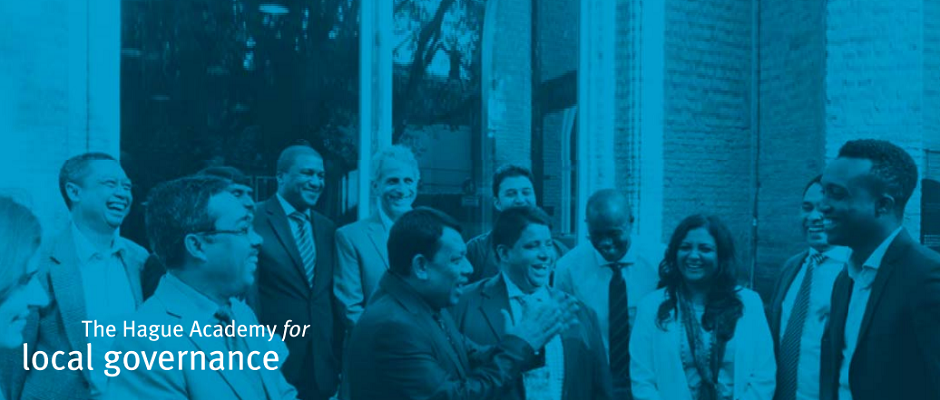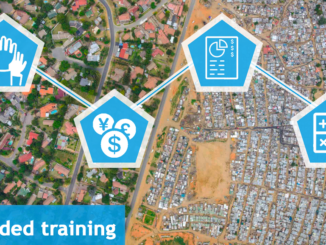
The Local Public Sector Alliance, in partnership with The Hague Academy of Local Governance, is pleased to announce the formal launch of the online course Decentralization and Localization: Why and What?
The online course provides an introduction to the topic of decentralization and localization by identifying the importance of the topic to global development and by establishing a common vocabulary on topics related decentralization, multi-level governance and intergovernmental relations.
The objective of the course is to bring together stakeholders from diverse institutional backgrounds and different fields—including public sector governance, public administration, and public finance, as well as sectoral specialists and others in the global development community—around the topics of decentralization and localization in order to share knowledge and ideas in an evolving global context.
Who is this course for?
As a result of the broad introduction to decentralization, localization and multi-level governance that the course offers, Decentralization and Localization: Why and What? is not just relevant to practitioners in the field of public sector governance, public administration or public finance, but to a much wider audience of public policy analysts; public financial management specialists; sector specialists in education, health, water and sanitation, urban development, and other sectors; and global champions in crosscutting fields such as inclusive development; climate change; and peacebuilding.
This course is relevant for participants from countries around the world, regardless of level of development or whether the country is federal or unitary in nature. The course draws on examples from developing, transitioning, and developed countries from all global regions.
The course is relevant for scholars and policy practitioners with a range of different backgrounds, including officials working for global financial institutions, development agencies and foundations (World Bank; UNDP; UNCDF; regional development banks; bilateral development agencies; etc.); central government officials dealing with decentralization or (sectoral) localization; regional and local government officials; researchers and analysts; as well as academics and (graduate) students.
Course Administration and Platform
The mini-course Decentralization and Localization: Why and What? is directed by Dr. Jamie Boex, the Executive Director of the Local Public Sector Alliance. The course administrator is Ms. Mirna Dave (admin@decentralization.net).
The course is offered on Thinkific, the Local Public Sector Alliance’s online learning platform at: https://localpublicsector.thinkific.com/courses/whyandwhat
The course is available as a self-paced online course. The course is available free of charge. As a self-paced, online course, this course is available year-round.
Detailed Course Outline
The course consists of two chapters. Each chapter contains roughly one hour of online learning materials, including video lectures, reading materials, online explainers, quizzes, interactive exercises (as relevant) and a final exam. All participants receive a personalized certificate at the conclusion of the course. (See the full Course Program).
Welcome and course overview
Chapter 1. Why decentralization?
1.1 Why should we care about decentralization or localization?
1.2 Why do countries pursue decentralization or localization?
1.3 Decentralization and localization in the real world: an overview
1.4 Evolving perspectives on decentralization over time
1.5 Why decentralization? Different stakeholder perspectives
Chapter 2. Concepts and definitions
2.1 What is decentralization? Basic concepts and definitions
2.2 More definitions: what are regional and local governments?
2.3 What is the local public sector? Different mechanisms of decentralization and localization
2.4 A comprehensive framework for assessing decentralization and intergovernmental relations
Next Steps



